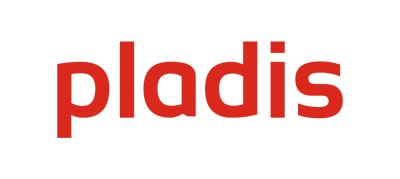
Pladis (formerly United Biscuits) implements JD Edwards – Food Industry ERP

In 2016 Yildiz Holding, CEEMEA’s largest food company, has brought together its core biscuit, chocolate, and confectionery businesses Godiva Chocolatier, United Biscuits, Ulker and DeMet’s Candy Company, to form a new global company: Pladis.
The new entity unites internationally recognised brands Godiva, a leading premium chocolate brand worldwide, McVitie’s, a leading biscuit brand with a heritage in the UK and Europe, and Ulker, the leading biscuits and confectionery brand in Turkey and Middle East; a love mark in its category. Together they form a $US5.2 billion business, positioning Pladis as a global leader in the category.
Cadran completes the successful implementation of JD Edwards EnterpriseOne at United Biscuits
Cakes and snacks manufacturer focussed on cost savings through efficiency
UB is one of the leading European producers of biscuits and snacks. The firm was founded in 1948 and has a strong position in the European market with wellknown brands as Verkade in the Netherlands and McVitie’s in the United Kingdom. In addition, UB is a leader in such countries as France, Spain, Belgium, Germany and Portugal, and products are exported to Canada, the USA and Asia. The biscuits division at UB is a market leader in Britain and the 2nd largest player in France, the Netherlands and Belgium. The firm has its head office in London.
UB is strongly oriented on achieving efficiency in its operating processes, with a view to saving costs. The company acquired JD Edwards World for its Dutch organisation and made large savings as a result. However, a problem faced by the company’s North-European division in recent years was the fact that its various establishments in the Netherlands, Belgium and France were using different systems. Verkade in the Netherlands was using JD Edwards World, but the Delacre establishments in Belgium and BN in France were using other ERP-systems. The inevitable result was integration problems, for which the firm wanted a solution. It ultimately opted for JD Edwards EnterpriseOne. This ERP package was implemented in cooperation with Cadran.
Integration problems
Frank Melis, Information Systems Manager Benelux at UB and Project Manager for the implementation of JD Edwards EnterpriseOne in Northern Europe says: “The lack of integration between various ERP systems caused various problems. For example, it was hard to work out stocks in Northern Europe. This information had to be retrieved from various systems and sorted. We also had to build interfaces between the various systems for inter-company shipments. Products are frequently shipped internally in this way, because we market our brands in a number of countries. Products are therefore made at Verkade in the Netherlands that are sold as Verkade on the Dutch market, but also under other brand names, such as Delacre and BN, in Belgium and France. You need integrated systems to manage such aspects as stock, production and demand. In addition, our IT people had to be knowledgeable about three different systems and we not only spend time, but also money, on maintaining and keeping systems up to date; a situation for which we needed a solution. We started to look for a supplier who could offer us a suitable solution.”
JD Edwards appreciably cheaper
UB then looked at a number of solutions. Melis: “We looked at SAP, because UB’ establishments in Britain and Spain work with SAP. But the great advantage of acquiring JD Edwards was that we needed new software for only half of the establishments. The establishments that were already using JD Edwards World only really needed an upgrade to JD Edwards EnterpriseOne. The cost benefits were, of course, quite appreciable. In addition, we had very good experience with JD Edwards and it would be simpler for the branches that were already working with JD Edwards to change over to another JD Edwards system. So we decided to change to JD Edwards EnterpriseOne.”
Implementation by stages
“When it comes to implementation we opted for a route where we would implement as much as possible internally. We therefore had less call on outside people, so that the route also took somewhat longer. On the other hand, the result was cost savings an less impact of changes. We looked first of all at the business processes for all branches in order to set out the ‘as-is’ situation, and designed a ‘to-be’ situation.
Our aim was to use the same systems and the same processes within the various North European establishments as far as possible. Our objective was to make changes where they would be really productive. And that is what we did. Following the design, we set up the system and tested it. This stage took approximately nine months. Users could then get to grips with the new system in a so-called “sandpit environment”. The sandpit test environment is a precise simulation of the future production environment. Here, user functions, processes and security aspects can be tested”, says Melis.
Cost savings and efficiency
“We shall see the most important advantages of a transfer to JD Edwards EnterpriseOne when Belgium and France change over as well. The various systems can then be integrated as planned. The transparency and efficiency of our operating processes will improve appreciably. In addition, we can then discard the old ERP-systems, with major cost savings. But even now, users have welcomed the much greater user-friendliness of the Windows-oriented graphical user interface, which benefits acceptance of the new system. In addition to the integration advantages of working on a North European system, which is in fact located at the central UK data centre in Liverpool, enormous improvements in efficiency were achieved through:
- complete integration of barcode scanning (EAN128/SSCC) for goods inwards, production and distribution;
- far-reaching integration of EDI (electronic reports traffic); not only customer orders and invoices, but also complete stock reconciliation with logistic service providers and co-packers;
- far-reaching automated inter-company traffic.
An example of this is that inter-company supplies to Belgium or France are fully completed on the shop floor. The shipment carries scanning support, on the basis of which goods-outwards,
invoicing, transport documentation and initial receipt at destination are automatically processed. The shipment can be followed up in EnterpriseOne and confirmed on arrival – after checking the number of pallets. Final receipt is then computerised. This reduces the time required for administrative and physical processing from 3 hours to only half an hour.
Successful implementation
For implementation, UB has set up an internal team to coordinate and carry out implementation for the various countries. In addition, Cadran was called in to support the firm. Cadran has years of experience in JD Edwards solutions. Melis says: “The choice of Cadran was obvious. The relationship with them originated at the time JD Edwards World was implemented. We were very satisfied at the time with the know-how and service that they provided, so the choice was a logical one for us. They know the business like none other and that again became evident in the present project. Cadran is a partner with a good deal of knowledge about JD Edwards Systems. And they are not just technically good, they also see the job from the operating aspect. Implementation went well. Of course we had some minor teething troubles, but the UB implementation team and Cadran dealt with them efficiently. We are very satisfied.”



